Heritage Expeditions: Voyages of discovery with Tim Flannery

This article is brought to you by Heritage Expeditions.
Professor Tim Flannery knows a thing or two about our world. His credentials are impressive. He is an explorer, environmentalist, conservationist, mammalogist, palaeontologist, author, public scientist and 2007 Australian of the Year. Tim’s determination to learn more about our world and make an impact on it has not waned. In fact, he has been sharing his passion and knowledge with Heritage Expedition’s guests for years, leading citizen science projects that can, and do, make a difference.
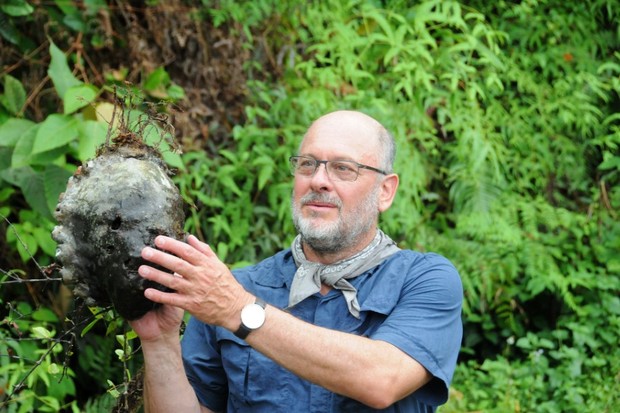
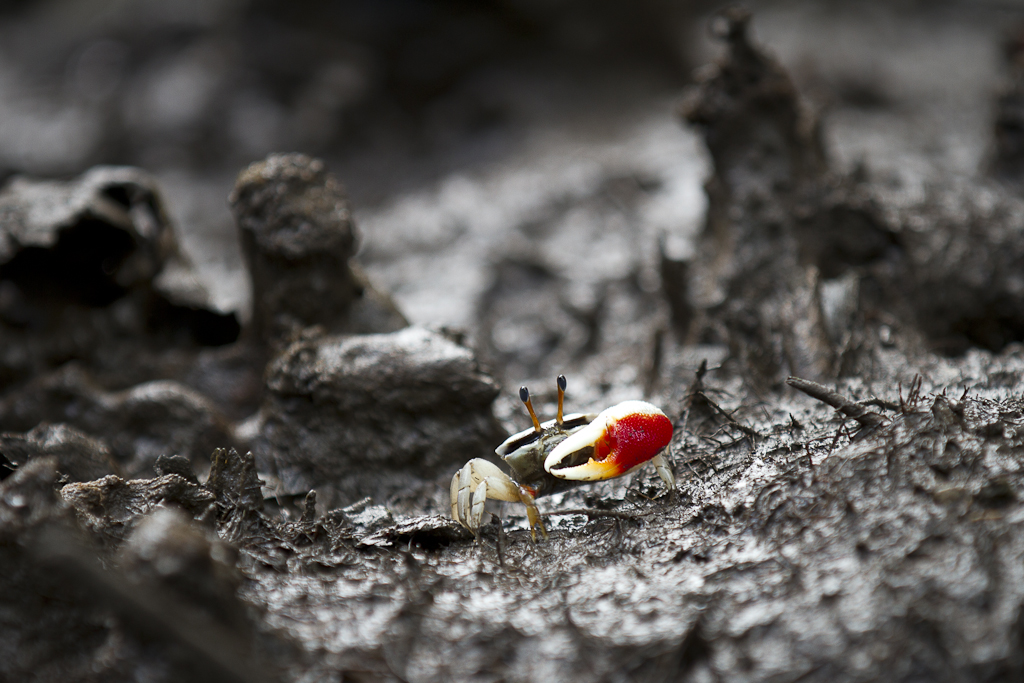
Tim will be a special guest on the ‘Indonesian Explorer’ in 2024. Melanesia holds a special place in Tim’s heart, as he spent several months a year over a 20-year period doing fieldwork in its pretty, remote , hard-to-reach places. “The country became a big part of me,” he said.
Tim was able to reconnect with these islands as a special guest of Heritage Expeditions. He has been a regular guest with the company for around eight years and loves seeing how these islands have changed, or haven’t changed, over that period.
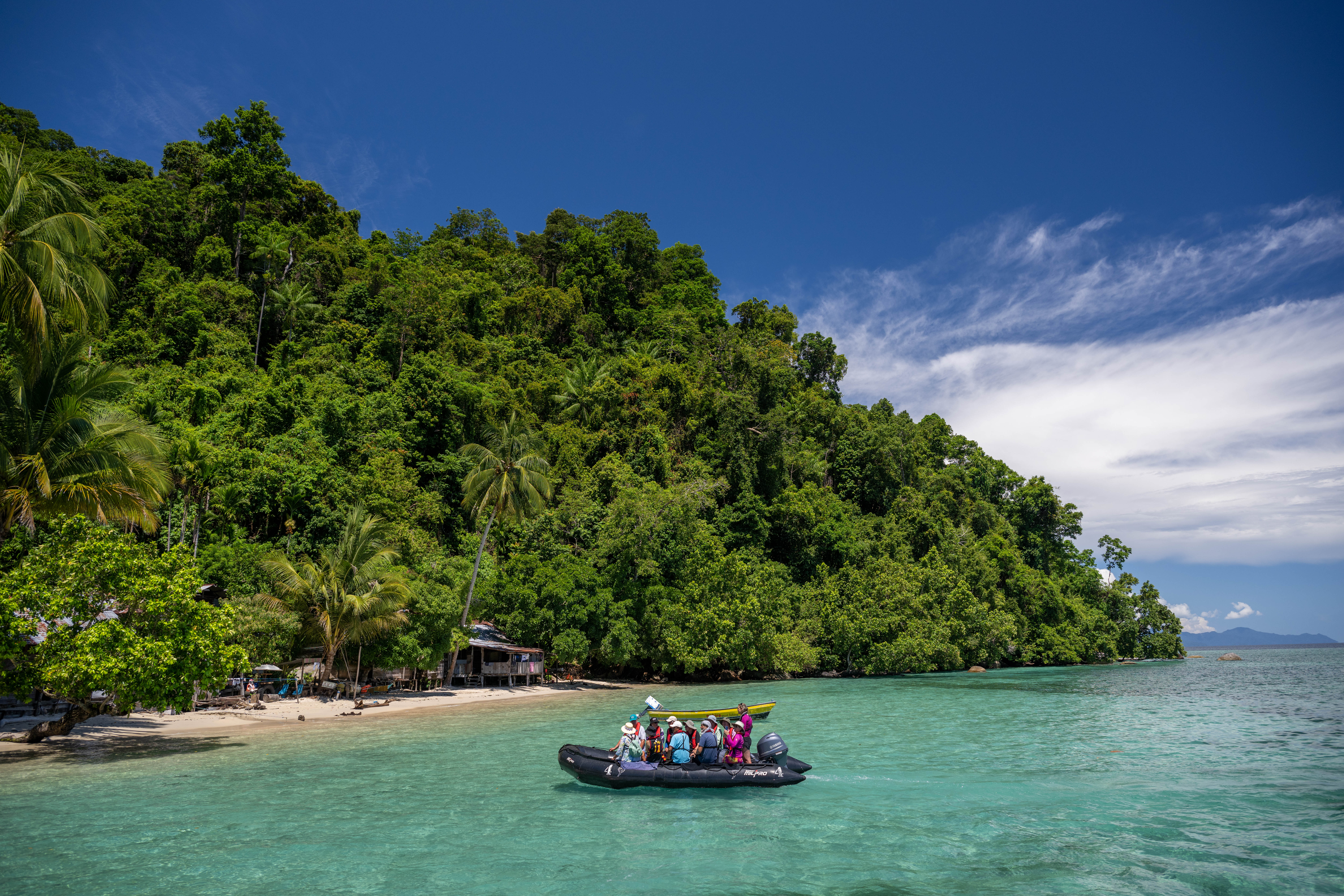
On one journey a few years ago, Flannery and his enthusiastic citizen scientists on board documented 20 mammal species on Indonesia’s Kofiau Island. “Going to that island was like filling in a huge blank. There had only been a single record of a mammal from that island up until we did that work.
“The great thing about that voyage was that we had 40 people on board. So that’s 40 pairs of eyes watching, taking notes and observing. We take them out and walk through the jungle, or go spotlighting through the mangroves and up the creeks on a Zodiac cruise at night, and every pair of eyes is valuable. Some people see animals and photograph them, others document what they might see. Once back on board, everyone contributes any photographs or observations that they’ve made and then we’ll summarise what we have found. That is what citizen science is all about. We ended up publishing a significant scientific paper on the findings at Kofiau,” he said.
“Founders Rodney and Shirley Russ have long understood the importance of biodiversity. Rodney was at the forefront of biodiversity conservation in New Zealand for many, many years. Without him, maybe we might not have species like the Kākāpō and the Black Robin. Rodney and his colleagues helped save these birds from extinction back in the ‘60s and ‘70s,” Tim concluded.
Conservation afloat
Aaron Russ, who along with his brother Nathan took over the mantle from their parents in 2018, says the unswerving dedication to conservation still holds true. “Conservation is in Heritage Expeditions’ DNA – it’s what our company was founded on and filters through every aspect of what we do today,” he said. Rodney’s work in remote wilderness areas with endangered species has informed the ethos of Heritage Expeditions, which is to share these incredible places, the wilderness and wildlife with adventurous travellers to create an army of ambassadors – an army of guests that have the opportunity to be involved in citizen science initiatives. This might be assisting Birdlife International in the Arctic, searching for the nesting sites of some of the world’s rarest and most endangered birds, or collecting air samples in Antarctica. They can also help discover new species with Tim Flannery, assist leading penguin scientists collecting samples at the world’s largest and oldest Adélie penguin colony, or record marine mammal and wildlife sightings and then share their adventures with friends, family and colleagues when they return home. It is a meaningful experience for everyone.
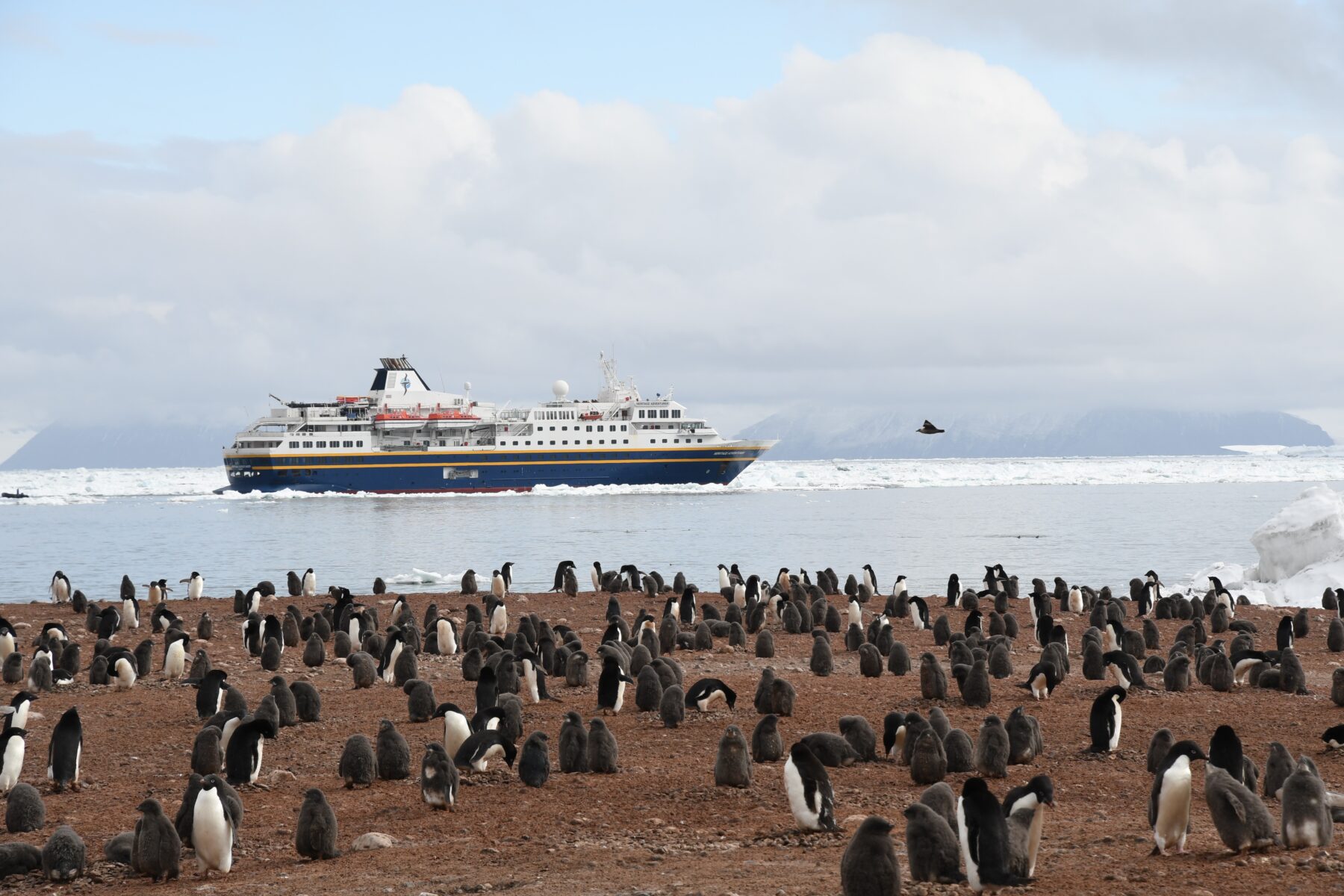
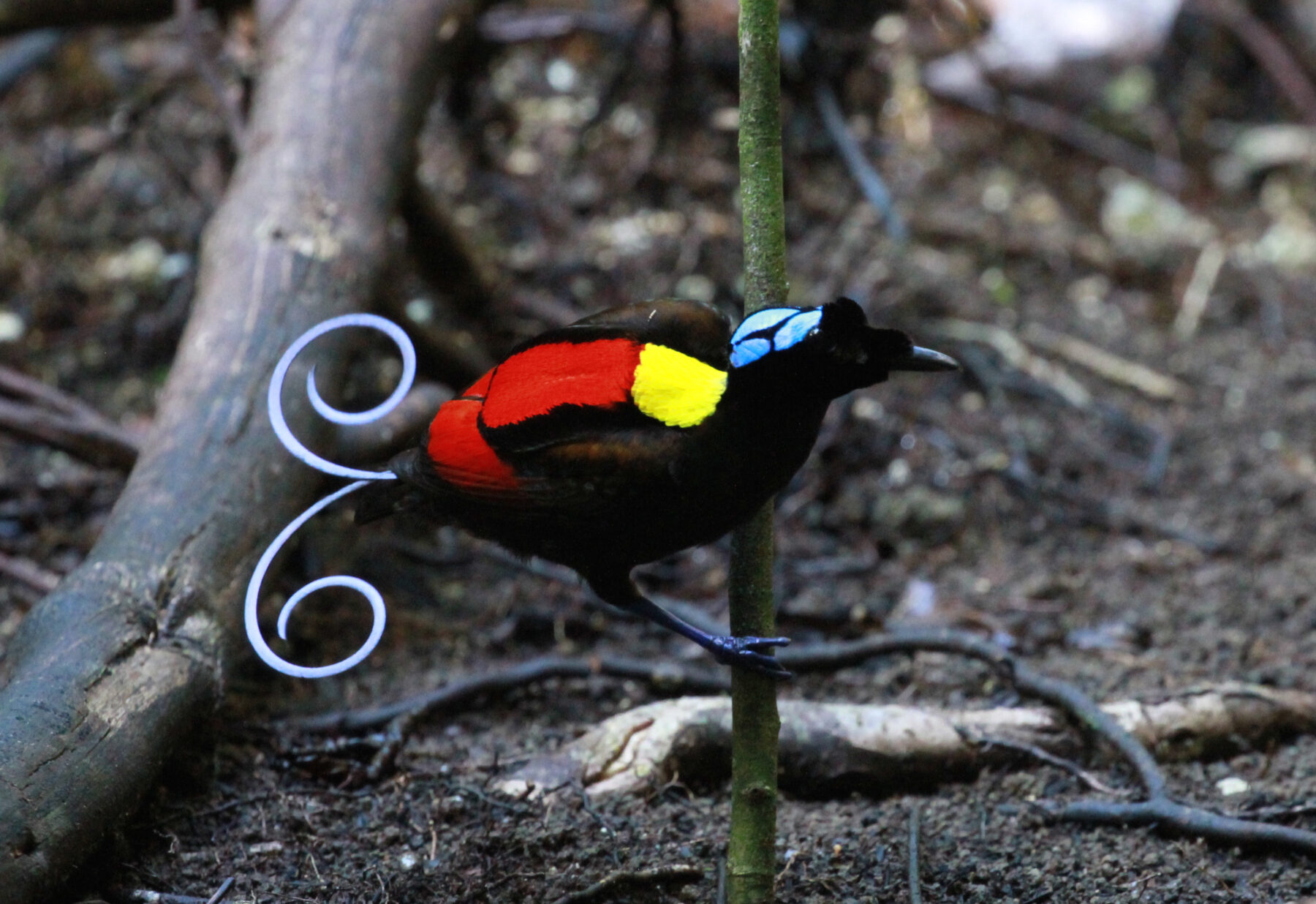
Making new discoveries is especially memorable for guests, and the Heritage Expedition team. Aaron said: “The New Caledonian Storm-Petrel, previously thought extinct, rediscovered on a Heritage Expeditions voyage in 2008, while the Heritage ‘Lava’ Petrel was discovered while sailing through the South Pacific in 2019. Then there were the 20 mammal species identified on Kofiau Island with Tim Flannery.”
Heritage Expeditions is also involved in the race to save the Antipodean Albatross, which only breeds on the Antipodean Islands of New Zealand and is facing extinction in less than 20 years due to the devastating impact of longline fishing.
“The ability and opportunity to be able to contribute to and/or be part of a scientific discovery is among the many reasons our guests choose to travel with us,” says Aaron. “Travelling with, and learning from, someone like Tim Flannery while making new discoveries is an incredible opportunity. This is a man Sir David Attenborough has described as being ‘in the league of the world’s all-time greatest explorers.’”
Tim, and all of Heritage Expeditions’ guides, are leaders in their fields.
Into Melanesia and beyond
The Indonesian Explorer voyage, with Tim on board, as well as multi-award-winning BBC and National Geographic wildlife filmmakers Neil Nightingale (former head of the BBC Natural History Unit) and Karen Bass, is a 19-day journey of discovery on Heritage Adventurer from Bali to Port Moresby, Papua New Guinea followed by a free flight to Cairns. It will be truly spectacular, with guests able to swim with the whale sharks in Triton Bay, visit Komodo National Park and walk with Komodo dragons, discover Jacques Cousteau’s “underwater nirvana” – Wakatobi National Park – and explore the turquoise waters and rainbow corals of Raja Ampat. During the voyage guests will have the opportunity to snorkel world famous Pink Beach, see birds-of-paradise and many more endemic species, World War II relics and visit remote tribes.
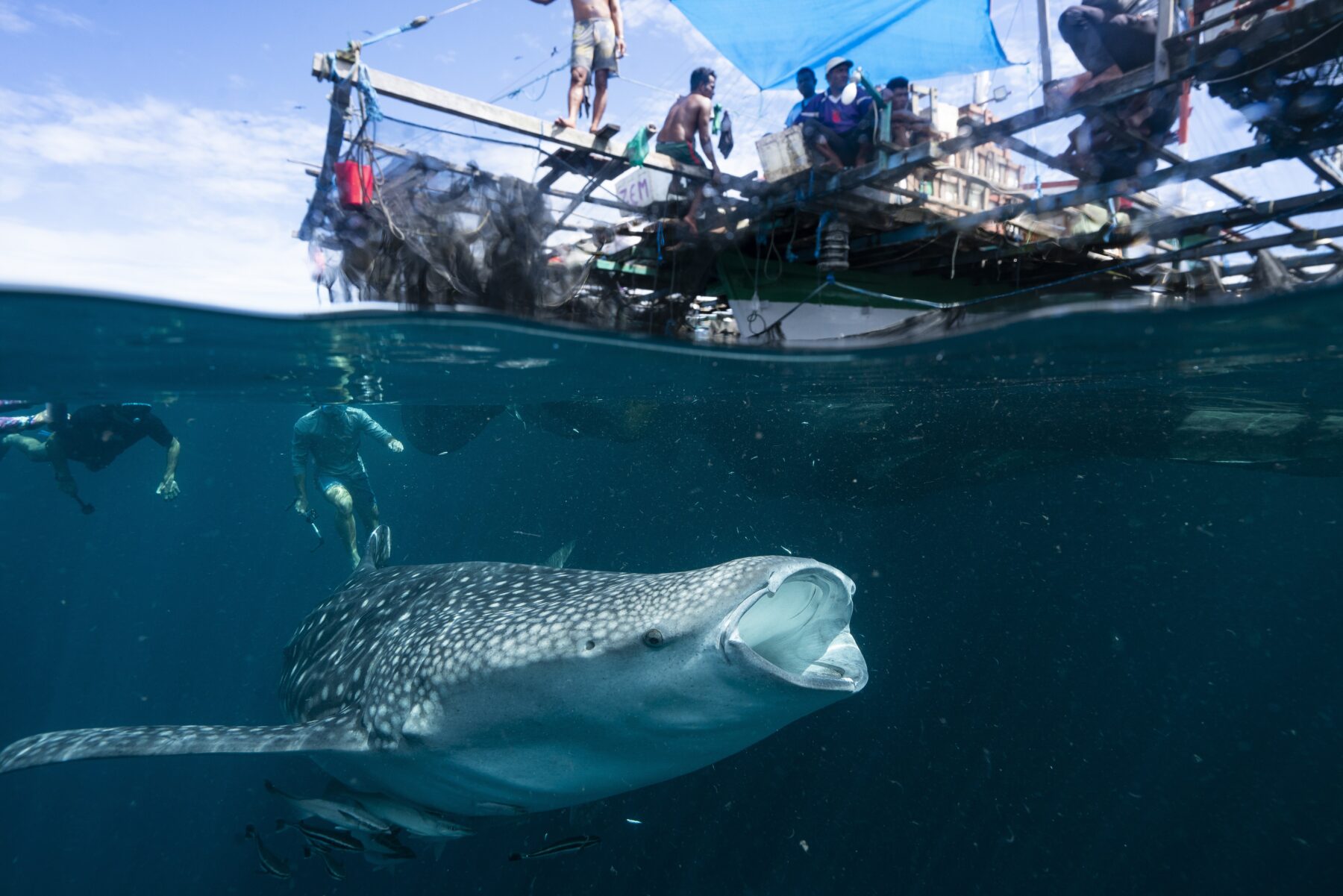
From Port Moresby, the ship farewells guests not travelling back-to-back and welcomes more intrepid travellers for the 17-day ‘Discover the Secrets of Melanesia’ voyage. Sail into places few will ever see, with time-honoured traditions and costumed dancers along with exotic wildlife. Explore the culturally rich Trobriand Islands where indigenous culture has remained unchanged for countless generations. Explore the coral-fringed Louisiade Archipelago, the D’Entrecasteaux Islands, experience the biological wonderland and rare endemic species on remote Woodlark Island and spend a fascinating day exploring Bougainville Island.
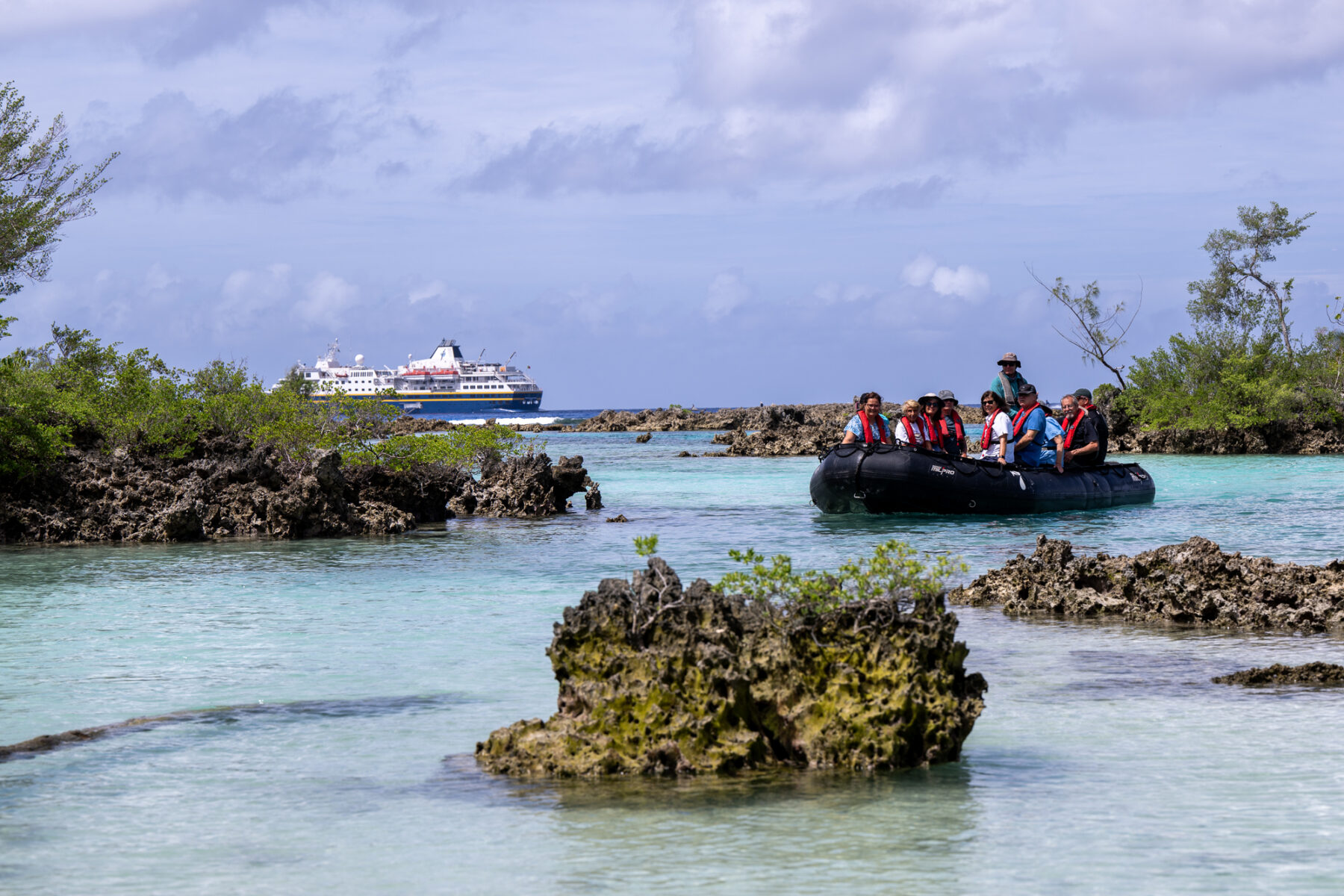
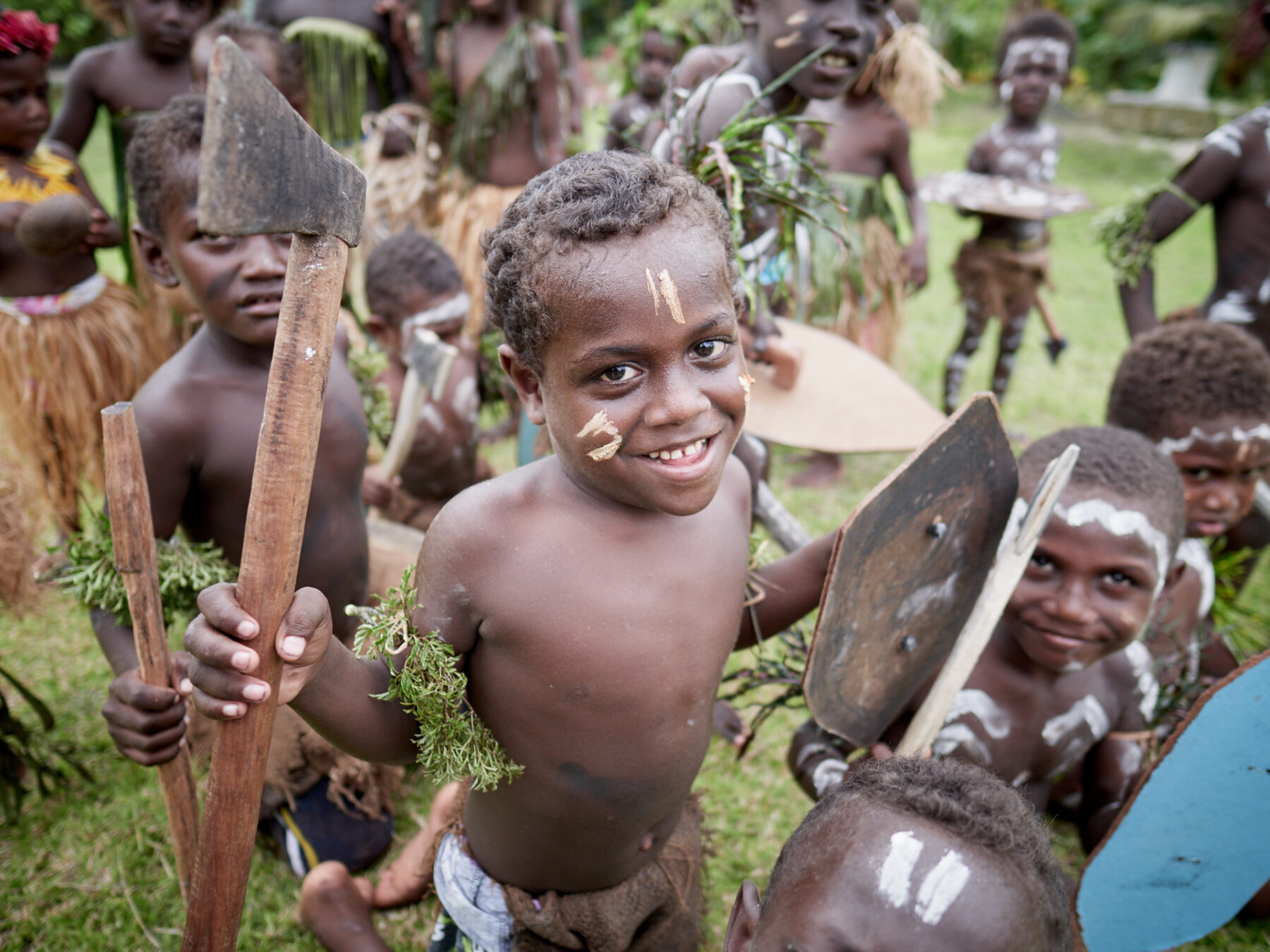
The opportunity to experience these places and assist Tim Flannery with important work is a once-in-a-lifetime chance. Tim said, “I think that the thing that sets these voyages apart really is the excitement of discovery. The guests are not just coming along as we follow in the tracks of many other vessels looking at things that many people have looked at. We’ll be going to some areas that have never been visited before by a cruise vessel.
“And that is just so exciting.”

Join Professor Tim Flannery in his search for mysterious new mammals in Indonesia with Heritage Expeditions.
For more information call 1800 143 585 or email [email protected]
This article is brought to you by Heritage Expeditions.

